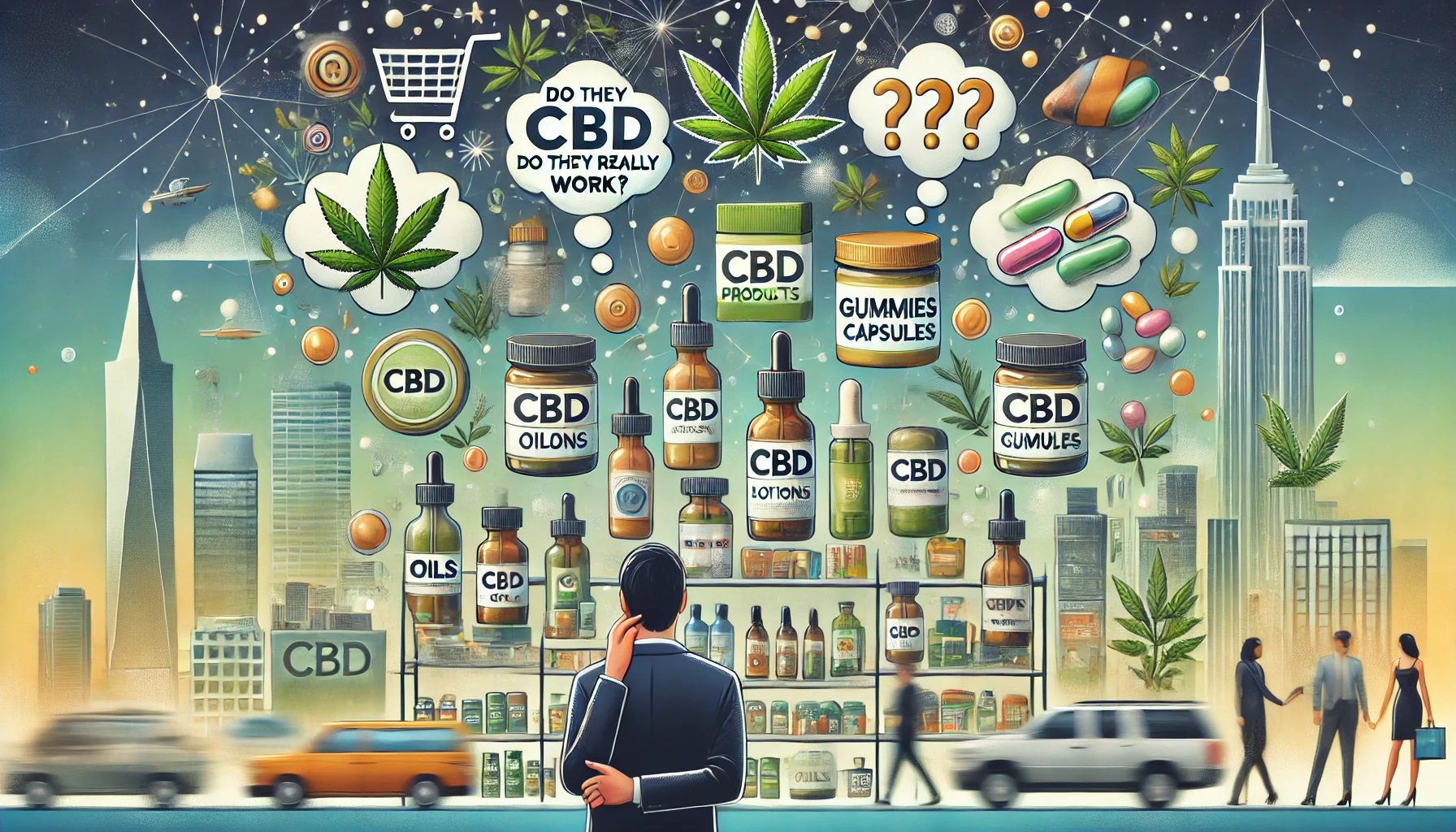Understanding the Benefits and Limitations of Cannabidiol
CBD, or cannabidiol, is popping up in all sorts of products, from drinks and lotions to pet treats and gummies. Even major drugstore chains are getting on board, carrying CBD products in certain states. But with its growing popularity, many still have questions: What exactly is CBD? Is it marijuana? Is it legal? And most importantly, does it actually work?
In this article, we’ll break down what you need to know about CBD, including its uses, legality, and effectiveness.
What Is CBD—Is It Marijuana?
The short answer: yes and no. CBD is one of the main active compounds found in the marijuana plant. The other is THC, the compound responsible for the high associated with marijuana use.
CBD, on the other hand, doesn’t make you feel high or cause significant impairment. However, it’s not entirely accurate to say it’s “non-psychoactive.” CBD can influence your consciousness, helping you feel relaxed, sleepy, or less pain. Some products may also contain small amounts of THC, which could slightly affect how you feel.
CBD can be derived from both marijuana and hemp plants. Hemp contains 0.3% or less THC and has been used for centuries to make products like fabric and rope. In 2018, Congress legalized hemp nationwide, making hemp-derived CBD legal in all 50 states, though some states still regulate its use.
Is Marijuana-Derived CBD Legal?
The legality of marijuana-derived CBD depends on where you live. In some states, marijuana is legal for both recreational and medical use, while in others, it’s only legal for medical purposes—or not legal at all. Federally, CBD derived from hemp is legal, but CBD from marijuana is not, despite being the same compound.
Currently, the FDA considers CBD products as supplements, which means they’re not regulated for safety or quality. However, the FDA is cracking down on companies making unproven health claims, especially those targeting vulnerable populations. For example, claims that CBD cures COVID have been quickly shut down.
There is only one FDA-approved CBD product: Epidiolex, a prescription drug used to treat rare seizure disorders in children. If you’re wondering whether CBD is legal in your area, check your state health department’s website or consult local professionals.
Does CBD Actually Work?
CBD has been shown to help with certain conditions, but not all the conditions it’s often marketed for. For example, there’s no evidence that CBD cures cancer, despite some claims. However, there is moderate evidence that CBD can help with:
- Sleep disorders
- Fibromyalgia pain
- Muscle spasticity related to multiple sclerosis
- Anxiety
Additionally, emerging research suggests CBD may assist people in overcoming addictions.
People commonly report that CBD helps relieve anxiety, pain, and promotes better sleep. It’s available in various forms, such as gummies, tinctures, pills, and even smokable products (though smoking is not a healthy option). However, one major issue is that many products don’t contain the amount of CBD listed on their labels, so consumers should be cautious when buying.
Where Should You Buy CBD Products?
If you’re interested in trying CBD, it’s best to purchase it from a state-licensed dispensary, which ensures that the products meet legal standards for safety and quality. Buying from a dispensary helps you avoid mislabeled products and ensures you’re getting the right amount of CBD.
Key Takeaways:
- CBD is a compound from the marijuana plant but does not cause a high like THC.
- The legality of CBD depends on its source (hemp or marijuana) and your state’s laws.
- CBD is most effective for certain conditions, such as anxiety, sleep issues, and pain, but it’s not a cure-all.
- Be cautious of product labels, as many products contain less CBD than advertised.
- Purchasing from a licensed dispensary is the safest way to buy CBD.
Is CBD Right for You?
While CBD may offer benefits for some people, it’s essential to understand that not all products are created equal. Research is still ongoing, and regulations are catching up with the market. If you decide to try CBD, do your research and consider consulting with a healthcare professional, especially if you have underlying health conditions or are taking other medications.

Leave a Reply